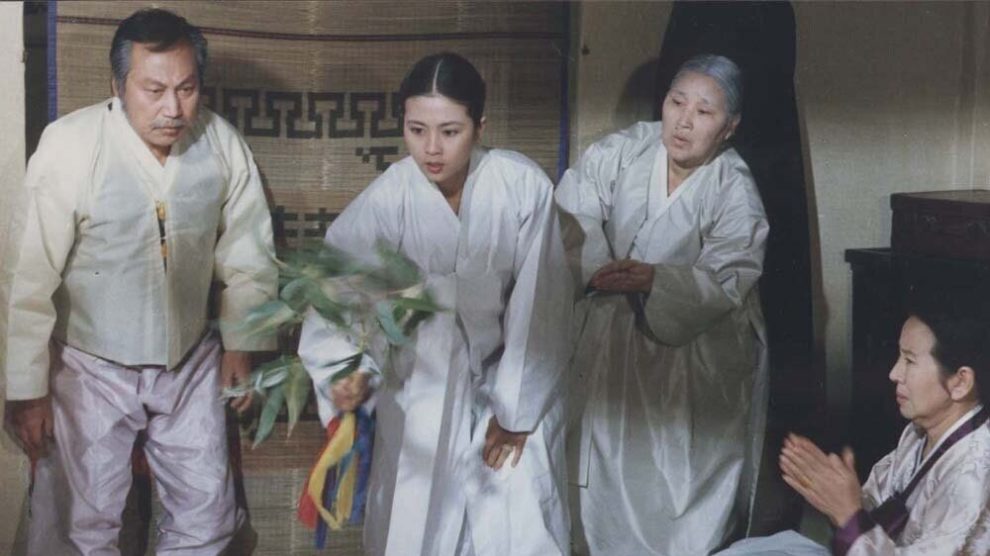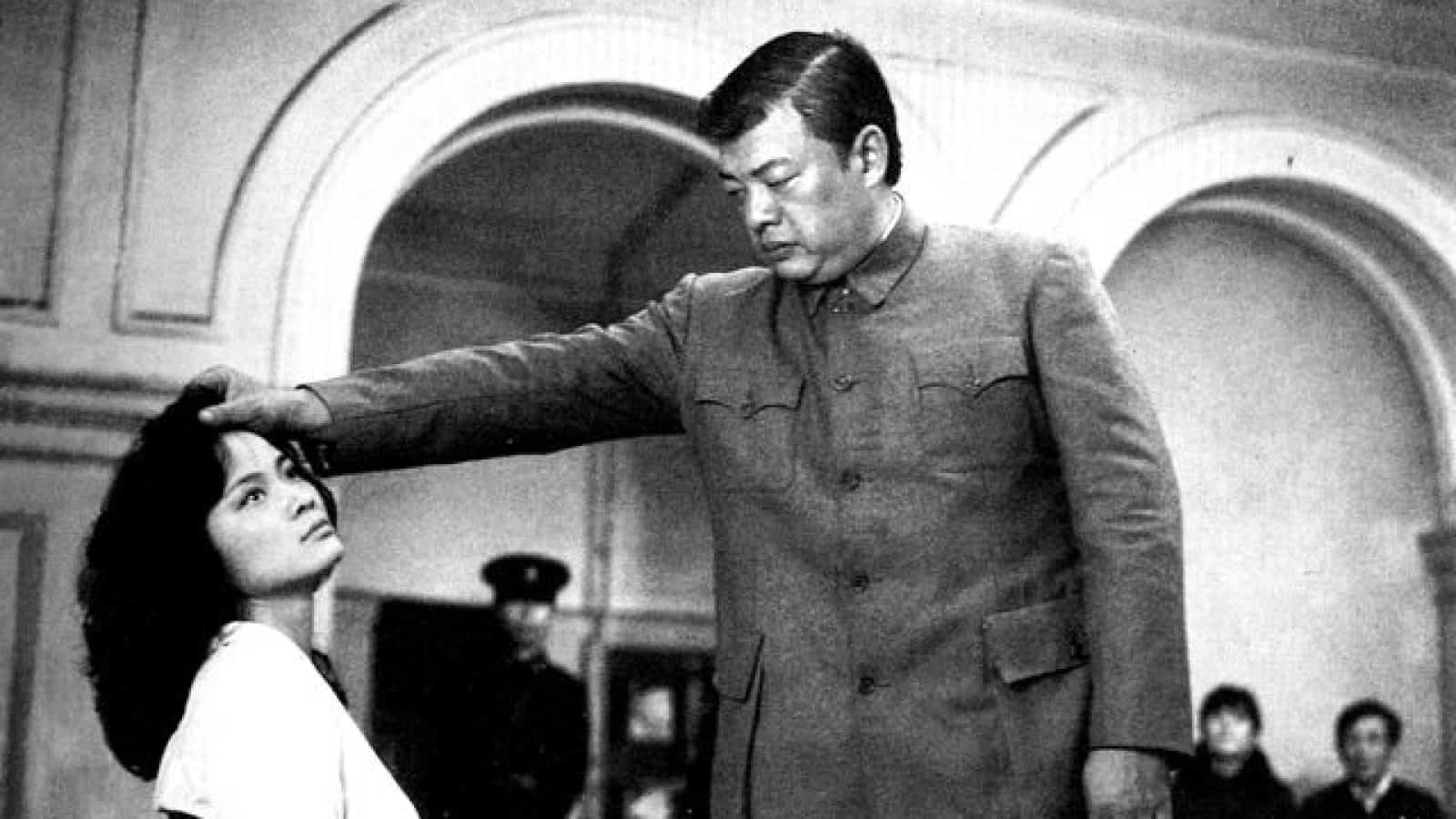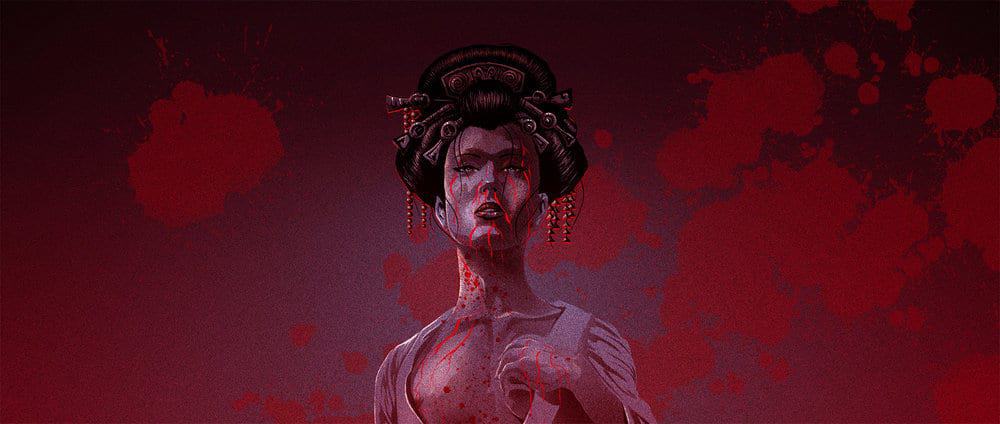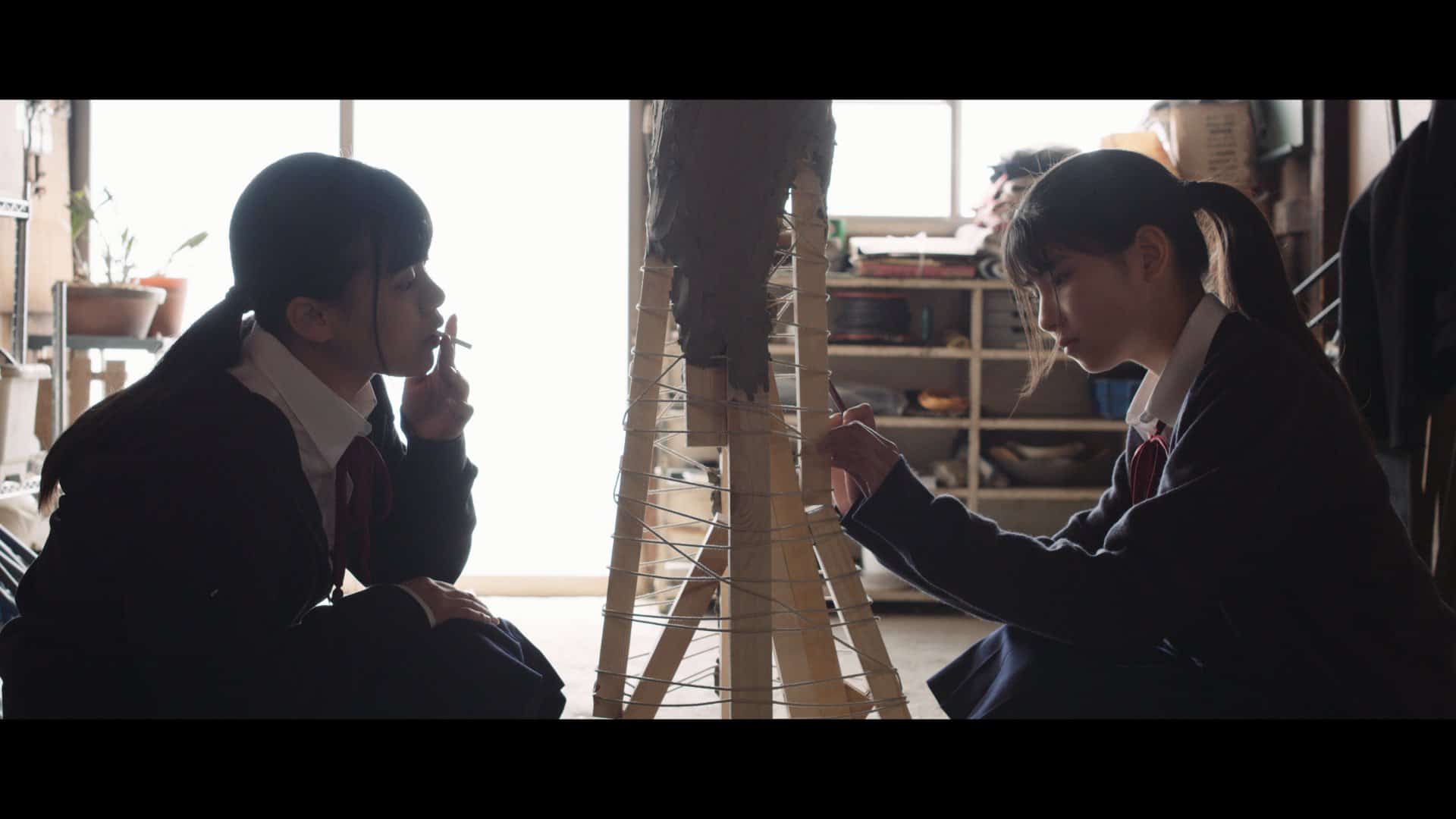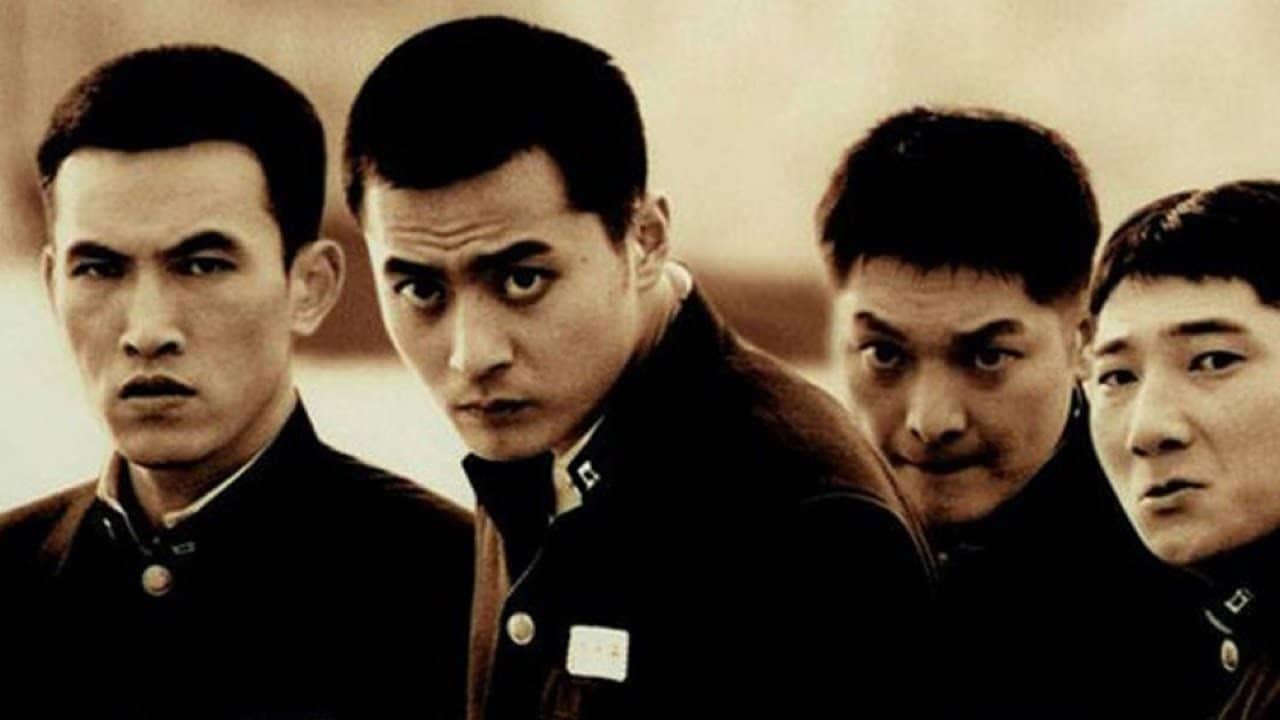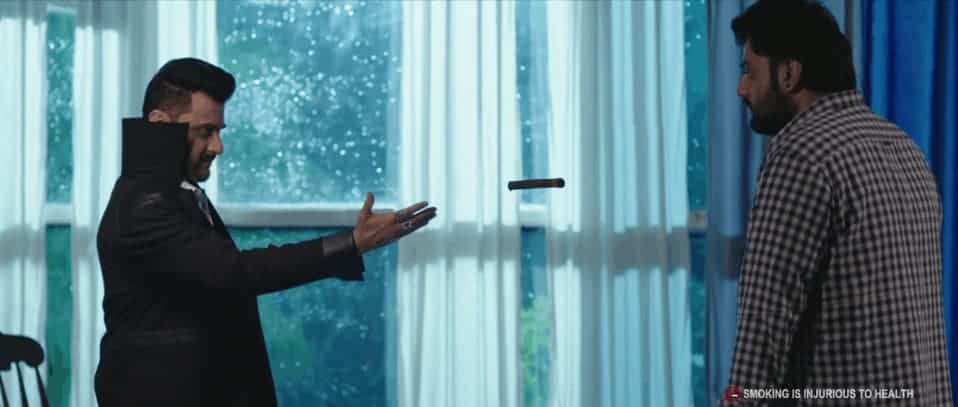A big part of Horror in the 1960s and 70s centered around themes of revenge from beyond the grave, with films about ghosts or figures coming back after their death to take their fury out on the individual that killed them. Offering instigation from curses, demonic influence, or pure bad luck, the genre flourished around the world with dozens of titles tackling the concept overtly or implicitly. One of these entries, a Korean obscurity from celebrated director Lee Doo-yong called “The Hut”, brings a watchable enough and enjoyable take on the style.
Living in a remote village, a mysterious illness afflicting Seong-min (Choe Seong-ho) forces his father Kang (Hwang Jung-seun) to call upon Ok-hwa (Yu Ji-in), a shaman priestess, to discover the cause of his affliction. After performing a ritual, she learns of a former hut guard named Sam-dol (Nam Koong-won) who lived on the property and tended to his daughter-in-law years ago when she became ill. However, when she and Sam-dol had an affair resulting in her becoming pregnant, they were both secretly punished leading the rest of the family to believe the spirit of Sam-dol has returned seeking revenge. When Ok-hwa becomes possessed by a spirit and the bitterness of generations of women burns within her, she sets out to make life difficult for everyone in the village.
Overall, “The Hut” has quite a lot to like about it. One of the stronger aspects here is the use of the localized setting. This adds a distinct and unique flair to the traditional tale of a possession and resulting exorcism that follows. The setting in Suri Village brings out a lot, with the immediate revelation of Seong-min's possession and the arrival of Ok-hwa who reveals the truth through the ceremonial ritual. This lavish mixture of tribal dancing and ritualized spell-casting that produces a poisonous snake out of nowhere in front of shocked villagers is immediate and highly enjoyable. With her resulting exorcism a similar combination of high-energy ritualistic performances and obscure chanting which eventually degrades into whacking him with a special branch repeatedly while Seong-min lets out unearthly wails, the sequence itself is quite fun. That everything happens so quickly in the film is a testament to its frenetic pacing, keeping this energy going through the various incidents that happen around the house while everyone tries to figure out what's going on.
On top of that, the second half gets a lot to like here with the revelation about the ghost and how it's affecting the family. This gets the full extent of the lengths the family went through to bury the news about the pregnancy and Sam-dol's death at their hands, from the setup of getting him together with the girl, their blossoming romance, and the reaction towards the pregnancy news by staging accidents resulting in their deaths. Putting all this together with the information gleaned from the first half, the finale features even more enjoyable action with the chaos of the second exorcism ritual. Far flashier and grander, with more elaborate rituals and even more chaos afforded to it than the first one due to the actual exorcism of Seong-min, this is a fun and enjoyable setup for the spectacle in the finale which adds a nice flair to things while also ending the film on a positive note.
While there aren't too many flaws, “The Hut” does have a few issues. The main factor with the film is the choppy pacing that keeps the horror scenes quite light in the running length, starting with the summoning of the numerous shamans around the area only for the family to dismiss them in favor of Ok-hwa. That is a rather curious decision that makes their arrival at the house without doing anything all the more illogical. Had they been allowed to perform their own rituals and only Ok-hwa's had proven effective, this disjointed beginning would be more effective. Once we're done with this, the film slows down slightly with the series of revelations and flashbacks to determine the origin of Sam-dol's ghost which is haunting the family. These are important at deciphering the plot from writer Yoon Sam-yook better but also highlight a lot of action at the beginning before dropping it for long stretches of time and then picking back up at the end with the possession. Also slightly problematic is a series of revelations that come forth in this section that don't need to be there, disrupting the tempo at the wrong moments. However, this isn't as bad as the other flaws here.
A generally fun Korean supernatural movie, “The Hut” has quite a few positives which manage to hold the film up over its minor factors which are thankfully not too damaging or detrimental in the long run. Viewers that appreciate these kinds of genre fare or appreciate the style and approach on display will enjoy this one.


